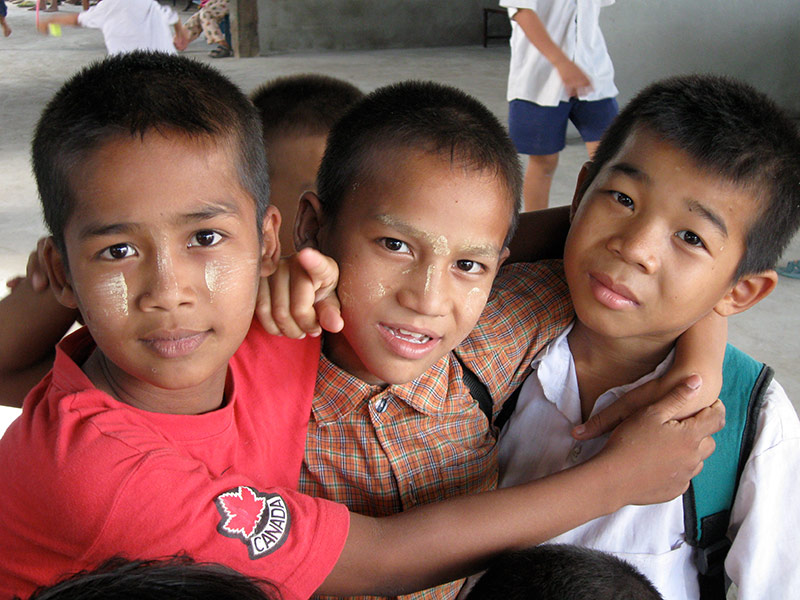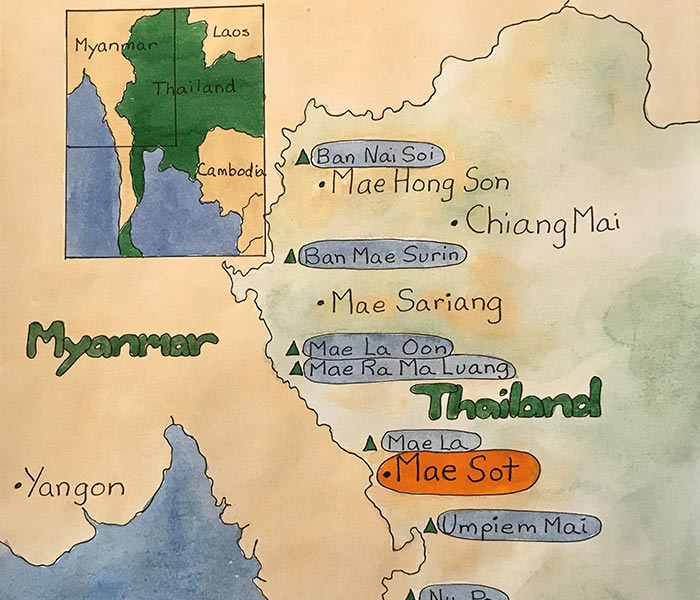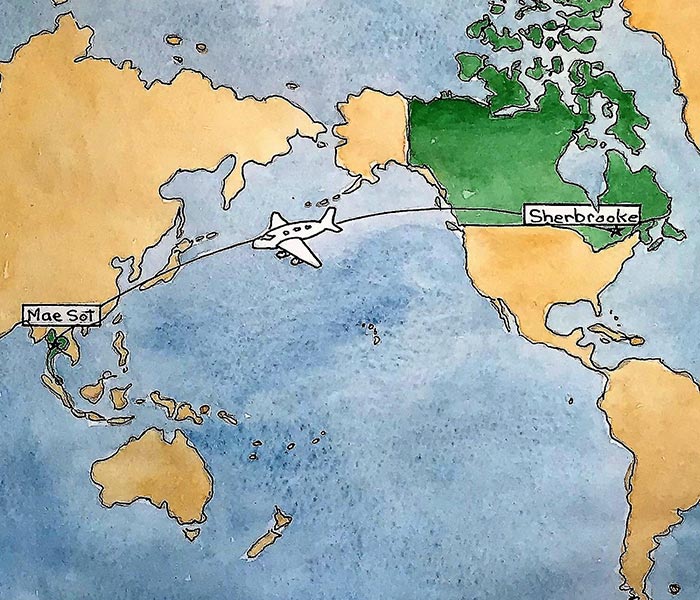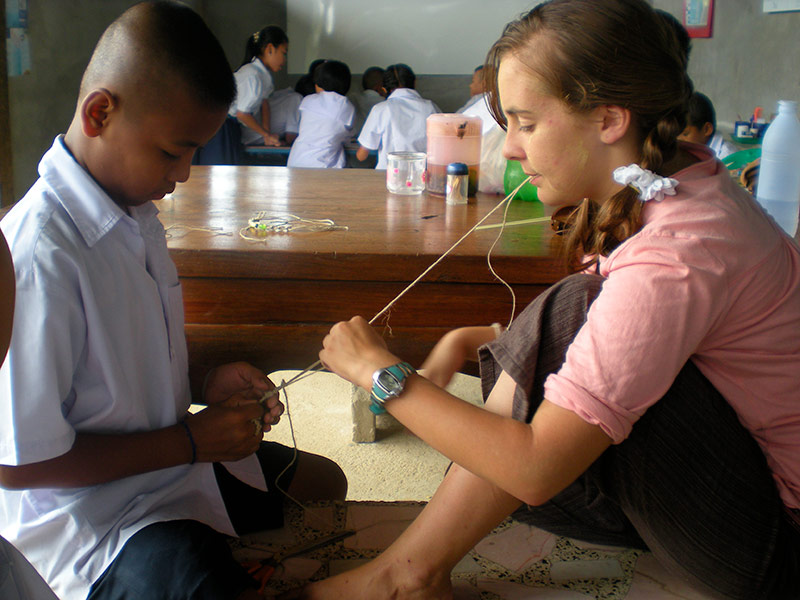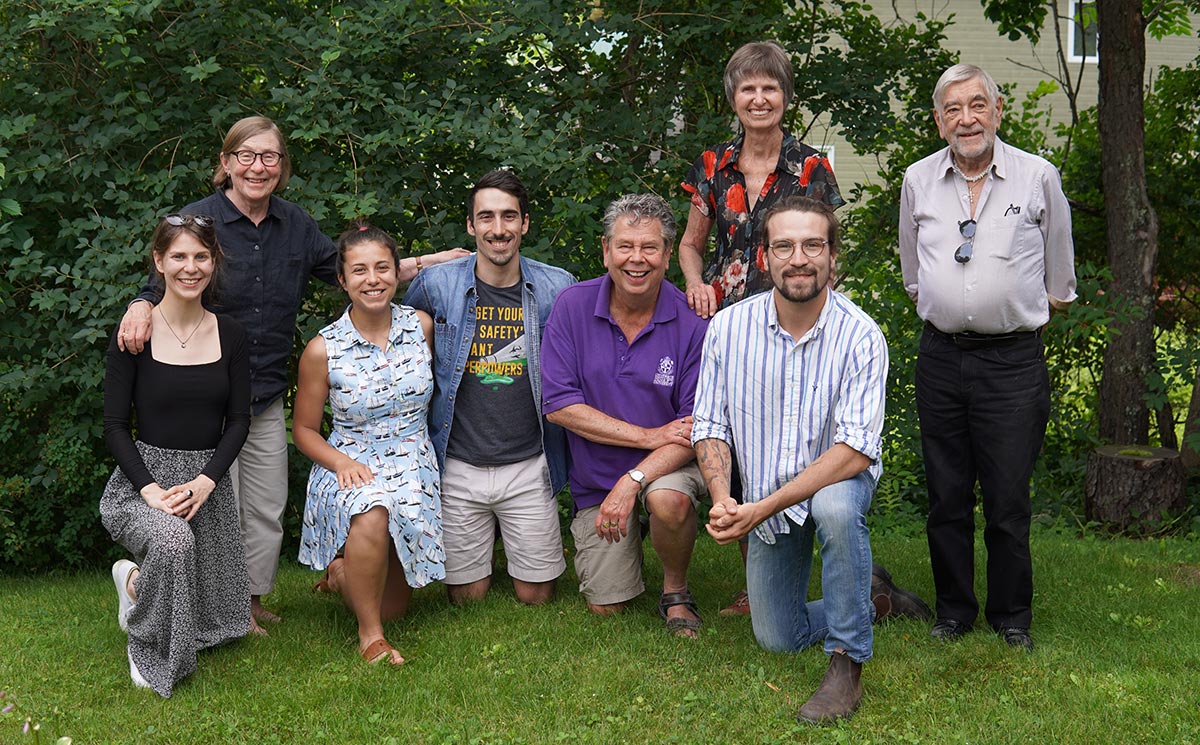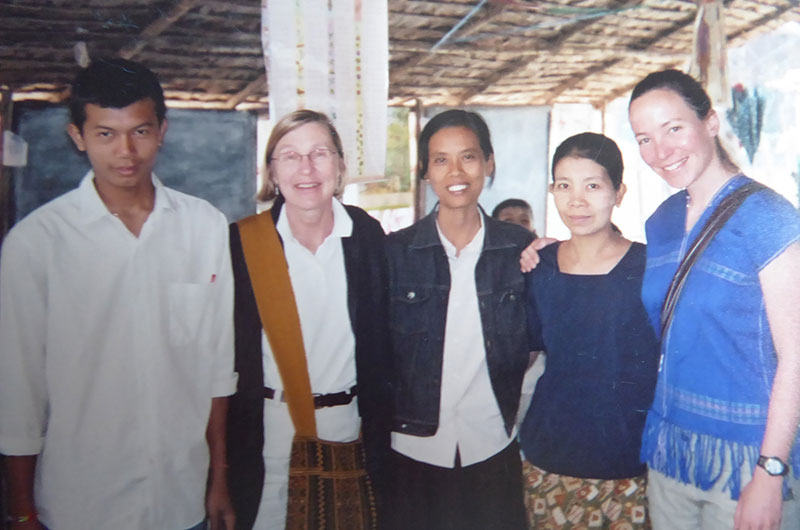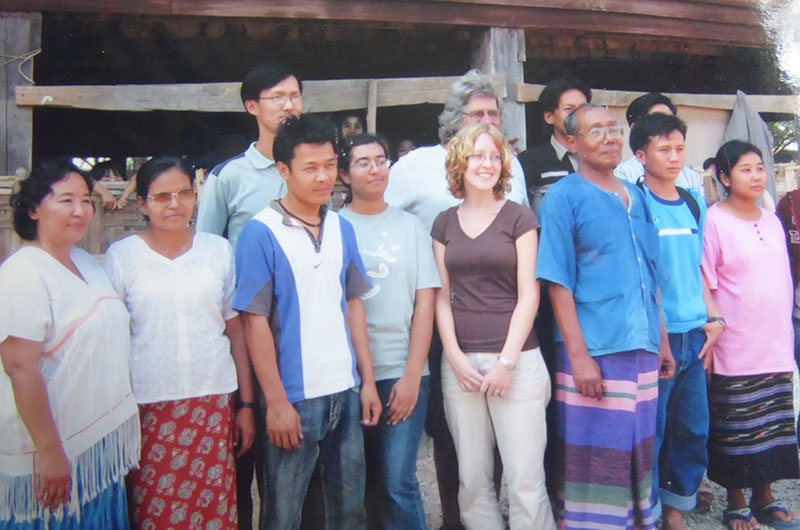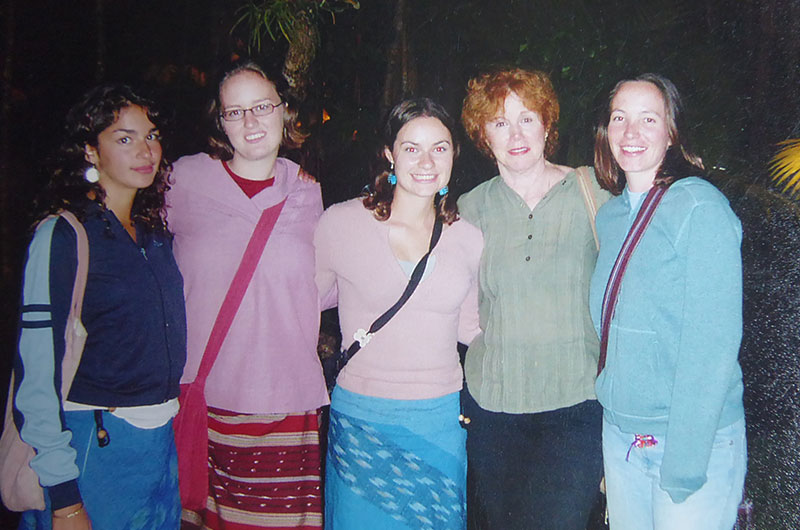
About us
Why this project?
Over the last decades, more than a million people have been forced by economic hardship, civil war or political repression in Myanmar (Burma) to relocate to towns and refugee camps in Thailand. The Mae Sot Education Project is a small project, based in Sherbrooke, Quebec, Canada, that hopes to support the people of Myanmar in their efforts to create an inclusive and democratic society by contributing to the education of migrant and refugee children in Mae Sot, Thailand. The project also aims to deepen the global understanding of youth volunteers and other Canadians and to promote friendship and solidarity between the people of Myanmar, Thailand and Canada.
Where we work
Click on a map to see the full version.
Maps attribution: Kathy Olson
In July, during our first face-to-face meeting in over a year, Kathryne Owen kindly produced a very short video about MSEP for The Record’s “Friday File”. You can watch it below:
Our Role in the Migrant Education Community
How does the assistance in the teaching of English provided by Mae Sot Education Project volunteers fit into the educational objectives of the migrant education community? English has become the global language. For the most precocious youth, it will open doors to higher educational opportunities that are otherwise simply unavailable to them. For others, it may be of lesser value but will lead to job opportunities, if only in Mae Sot or upon return to Myanmar. It is a service we can offer which is highly valued by the migrant educational community in creating its own future. However, for our project, English teaching is not the primary objective. We see the teaching of English as a vehicle for opening a window on the world for migrant and refugee children and also for creating bonds between volunteers and children that prove enriching on both sides. In addition, volunteers provide other kinds of pedagogical support in other subject areas as well as engaging in extra- curricular enrichment activities. It is the human – both intellectual and emotional – connections forged through this whole constellation of activities that give our project its value to our partners.
What we do
- We send student volunteers from Bishop’s University and Champlain College – Lennoxville (Sherbrooke, Quebec, Canada) to help in the teaching of English in schools for migrant and refugee children in and around Mae Sot by animating English learning activities.
- We provide some financial assistance and classroom materials to partner schools.
- We develop the understanding, leadership, and skills of the student volunteers.
- We encourage commitment to international cooperation and human rights in our community in Canada.
- We try to strengthen the ties of friendship and understanding among youth from Myanmar, Thailand and Canada.
Our Philosophy
We believe…
- in the importance of education that fosters critical thinking and concern for human well-being,
- that “small (and community-based) is beautiful” when it comes to project development,
- that volunteering in school environments must be long-term in order to make a meaningful contribution,
- in the potential of intercultural contact and exchange to deepen the understanding and enrich the lives of both migrant and refugee youth and Canadian volunteers,
- that our migrant education partners know best how to manage migrant children’s education. We do not direct their efforts but try to support them to the limits of our capacity,
- in collective fundraising to enable Canadian youth who possess talents, energy, and dedication to participate in our project even though they lack financial means,
- that, as members of the international community, we have a responsibility to contribute to solutions for refugee and migrant people, especially children.
Our Team
Our team is made up of members of our community in Sherbrooke, Quebec, Canada. It includes a Project Committee made up of former teachers and former volunteers with the project and a small group of youth from Bishop’s University and Champlain College – Lennoxville selected in the fall each year to undergo preparation during the winter and then represent our project to our partners in Mae Sot for six months from June to December. We are ALL volunteers!
2023 Project Committee (left to right):
Our History
In 2003 a small group of us in our community launched the Mae Sot Education Project in response to a realization that as educators and students already engaged in refugee sponsorship and protection, we had the capacity to do more!
We created partnerships with schools for migrant and refugee children from Myanmar in the Mae Sot area, applied for funding to foundations and local organizations and worked with Champlain College – Lennoxville and Bishop’s University to recruit volunteers. Our first team of four volunteers departed for Mae Sot in June 2004.
birth of Mae Sot Education Project
partnerships with migrant schools
teams of volunteers since our beginning
students in total volunteered
Over the years, MSEP has worked with ten migrant schools (now officially called learning centres). At present the project has partnerships with six: Hsa Thoo Ley, BHSOH, Hsa Mu Htaw, Hle Bee, Parami and Pyo Khin Learning Centres.
As of fall 2022, the Committee has sent 17 teams of volunteers (including a total of 66 students) to Mae Sot. All volunteers are committed to spending six months, from June to December, in Thailand living together and assisting in the schools. They receive on-going guidance and support from the Project Committee.
Volunteers have provided teaching materials and English activity leadership, assisted older students in preparation for the GED examination, animated sports and music activities, participated in school celebrations, assisted in production of video projects and even planted gardens. Through the volunteers, the project has donated money to schools for a variety of needs (e.g., materials, infrastructure, lunches, funding for school outings, teachers’ work permits). On occasion, the Project Committee has collaborated with other organizations working to help migrant schools. Although it received funding assistance from the Pathy Family Foundation for nine years and from several other foundations from time to time, our project has remained small and community-based over the fifteen years of its existence, drawing on mostly on local donors for support. Our close ties to our community have enabled us to provide extra assistance to schools at times. They have also provided an avenue for outreach and education.
